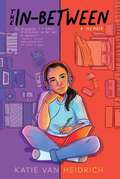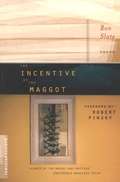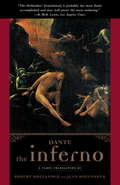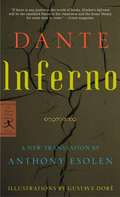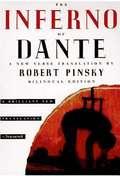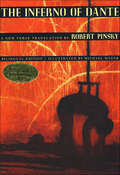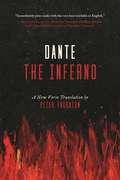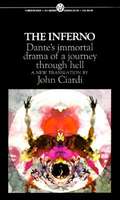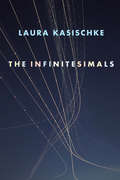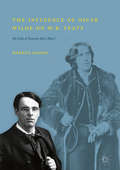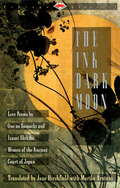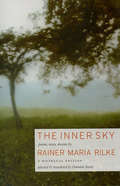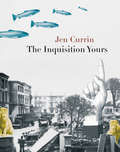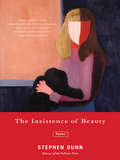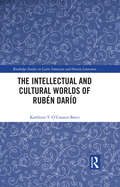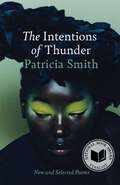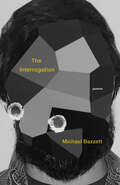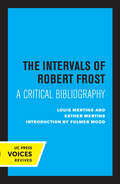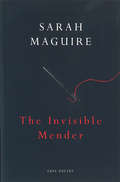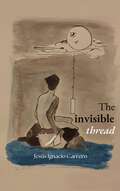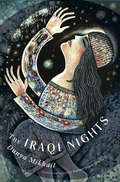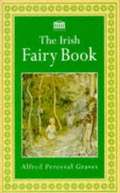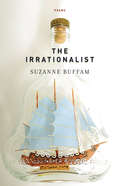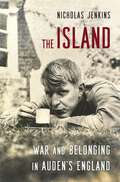- Table View
- List View
The In-Between
by Katie Van HeidrichFor fans of Enchanted Air by Margarita Engle and Life in Motion by Misty Copeland, this middle grade memoir in verse with &“stellar writing [and] perfect pacing&” (Kirkus Reviews, starred review) chronicles a young girl and her family who must start over after losing their home.In the early 2000s, thirteen-year-old Katie Van Heidrich has moved more times that she can count, for as long as she can remember. There were the slow moves where you see the whole thing coming. There were the fast ones where you grab what you can in seconds. When Katie and her family come back from an out-of-town funeral, they discover their landlord has unceremoniously evicted them, forcing them to pack lightly and move quickly. They make their way to an Extended Stay America Motel, with Katie&’s mother promising it&’s temporary. Within the four walls of their new home, Katie and her siblings, Josh and Haley, try to live a normal life—all while wondering if things would be easier living with their father. Lyrical and forthcoming, Katie navigates the complexities that come with living in-between: in between homes, parents, and childhood and young adulthood, all while remaining hopeful for the future.
The Incentive of the Maggot
by Ron SlateIn his prize-winning debut collection, Ron Slate seeks out the intersections of art, technology, and humanity with intelligence, wit, and fervor. His unique voice is informed by his world travels as a business executive. As Robert Pinsky writes in his introduction, Slate "brings together the personal and the global in a way that is distinctive, subtle, defying expectations about what is political and what is personal." In Slate's words, "Is this the end of the world? / No just the end / of the language that describes it." Recently published in The New Yorker, Slate has been praised by James Longenbach for his ability to "make the known world seem wickedly strange - a poetry that is utterly of the moment, our moment, because it sounds like nobody else."
The Inferno
by DanteThe epic grandeur of Dante&’s masterpiece has inspired readers for 700 years, and has entered the human imagination. But the further we move from the late medieval world of Dante, the more a rich understanding and enjoyment of the poem depends on knowledgeable guidance. Robert Hollander, a renowned scholar and master teacher of Dante, and Jean Hollander, an accomplished poet, have written a beautifully accurate and clear verse translation of the first volume of Dante&’s epic poem, the Divine Comedy. Featuring the original Italian text opposite the translation, this edition also offers an extensive and accessible introduction and generous commentaries that draw on centuries of scholarship as well as Robert Hollander&’s own decades of teaching and research. The Hollander translation is the new standard in English of this essential work of world literature.
The Inferno (Modern Library Classics)
by Dante Alighieri Anthony Esolen Gustave DoréAn extraordinary new verse translation of Dante's masterpiece, by poet, scholar, and lauded translator Anthony Esolen Of the great poets, Dante is one of the most elusive and therefore one of the most difficult to adequately render into English verse. In the Inferno, Dante not only judges sin but strives to understand it so that the reader can as well. With this major new translation, Anthony Esolen has succeeded brilliantly in marrying sense with sound, poetry with meaning, capturing both the poem's line-by-line vigor and its allegorically and philosophically exacting structure, yielding an Inferno that will be as popular with general readers as with teachers and students. For, as Dante insists, without a trace of sentimentality or intellectual compromise, even Hell is a work of divine art. Esolen also provides a critical Introduction and endnotes, plus appendices containing Dante's most important sources--from Virgil to Saint Thomas Aquinas and other Catholic theologians--that deftly illuminate the religious universe the poet inhabited.
The Inferno of Dante
by Dante Alighieri Robert Pinsky John Freccero Nicole Pinsky Michael Mazur<P>In spite of Dante's reputation as the greatest of Christian poets, there is no sign of Christian forgiveness in the Inferno. <P>The dominant theme is not mercy but justice, dispensed with the severity of the ancient law of retribution.
The Inferno of Dante: A New Verse Translation
by DanteThe prize-winning verse translation of Dante’s epic journey through hell: “splendid . . . fast-paced, idiomatic, and accurate” (Edward Hirsch, The New Yorker).This widely praised version of Dante’s masterpiece, which won the Los Angeles Times Book Prize and the Harold Morton Landon Translation Award of the Academy of American Poets, is more idiomatic and approachable than its many predecessors. Former US Poet Laureate Robert Pinsky employs slant rhyme and near rhyme to preserve Dante’s terza rima form without distorting the flow of English idiom. The result is a clear and vigorous translation that is also unique, student-friendly, and faithful to the original: “A brilliant success,” as Bernard Knox wrote in The New York Review of Books.
The Inferno: A New Verse Translation (Forsyte chronicles)
by Dante AlighieriThis enthralling new translation of Dante’s Inferno "immediately joins ranks with the very best” (Richard Lansing).One of the world’s transcendent literary masterpieces, the Inferno tells the timeless story of Dante’s journey through the nine circles of hell, guided by the poet Virgil, when in midlife he strays from his path in a dark wood. In this vivid verse translation into contemporary English, Peter Thornton makes the classic work fresh again for a new generation of readers. Recognizing that the Inferno was, for Dante and his peers, not simply an allegory but the most realistic work of fiction to date, he points out that hell was a lot like Italy of Dante's time. Thornton's translation captures the individuals represented, landscapes, and psychological immediacy of the dialogues as well as Dante's poetic effects.The product of decades of passionate dedication and research, his translation has been hailed by the leading Dante scholars on both sides of the Atlantic as exceptional in its accuracy, spontaneity, and vividness. Those qualities and its detailed notes explaining Dante's world and references make it both accessible for individual readers and perfect for class adoption.
The Inferno: A Verse Rendering for the Modern Reader
by Dante Alighieri John CiardiThis single volume, blank verse translation of The Divine Comedy includes an introduction, maps of Dante's Italy, Hell, Purgatory, Geocentric Universe, and political panorama of the thirteenth and early fourteenth century, diagrams and notes providing the reader with invaluable guidance. Described as the "fifth gospel" because of its evangelical purpose, this spiritual autobiography creates a world in which reason and faith have transformed moral and social chaos into order. It is one of the most important works in the literature of Western Europe and is considered the greatest poem of the European Middle Ages. Subtitle on the front cover says "Dante's Immortal Drama of a Journey Through Hell.:
The Infinitesimals
by Laura Kasischke"Kasischke's poems are powered by a skillful use of imagery and the subtle, ingenious way she turns a phrase."--Austin American-StatesmanThe Infinitesimals stares directly at illness and death, employing the same highly evocative and symbolic style that earned Laura Kasischke the 2012 National Book Critics Circle Award for poetry. Drawing upon her own experiences with cancer, and the lives and deaths of loved ones, Kasischke's new work commands a lyrical and dark intensity.Laura Kasischke is the author of eight collections of poetry and seven novels. She teaches at the University of Michigan and lives in Ann Arbor, Michigan.
The Influence of Oscar Wilde on W.B. Yeats: "An Echo of Someone Else’s Music"
by Noreen DoodyThis book asserts that Oscar Wilde (1854 – 1900) was a major precursor of W.B. Yeats (1865 – 1939), and shows how Wilde’s image and intellect set in train a powerful influence within Yeats’s creative imagination that remained active throughout the poet’s life. The intellectual concepts, metaphysical speculations and artistic symbols and images which Yeats appropriated from Wilde changed the poet’s perspective and informed the imaginative system of beliefs that Yeats formulated as the basis of his dramatic and poetic work.Section One, 'Influence and Identity' (1888 – 1895), explores the personal relationship of these two writers, their nationality and historical context as factors in influence. Section Two, 'Mask and Image' (1888 – 1917), traces the creative process leading to Yeats’s construction of the antithetical mask, and his ideas on image, in relation to the role of Wilde as his precursor. Finally, 'Salomé: Symbolism, Dance and Theories of Being' (1891 – 1939) concentrates on the immense influence that Wilde’s symbolist play, Salomé, wrought on Yeats’s imaginative work and creative sensibility.
The Ink Dark Moon
by Jane Hirshfield Mariko Aratani Izumi Shikibu No Komachi OnoThese translated poems were written by 2 ladies of the Heian court of Japan between the ninth and eleventh centuries A.D. The poems speak intimately of their authors' sexual longing, fulfillment and disillusionment.
The Inner Sky: Poems, Notes, Dreams
by Rainer Maria RilkeSelected work from the modernist poet thematically centered on our relation to the physical world and our minds, featuring original texts and translations.The Inner Sky is a selection of poems and prose by the great poet Rainer Maria Rilke, set with the original text and a translation, and including more than a dozen works that have never before appeared in English. The translations, by the NEA and PEN Award–winning author and translator Damion Searls, are lively, moving, and appealing, and they give a new voice for Rilke in English: mystical but concrete, like Emily Dickinson or Gerard Manley Hopkins. Searls&’s selection of texts clusters around a handful of related images and ideas—birds and trees, giving and receiving, working and waiting, girlhood and gardens—and presents a coherent vision of how we relate to the outer world and inner world of the imagination. Scholars and students of Rilke will benefit from the German and French originals opposite the translations, and two full indices of English and original titles and first lines. An annotated chronology and the translator&’s afterword complete this rich new volume, a necessary addition to even the most complete Rilke library, and the perfect introduction for those just getting to know this perennial master.&“No matter their level of familiarity with Rilke, The Inner Sky belongs on the bookshelf of any literature lover, thanks largely to Searls&’ deft translation and grouping of Rilke&’s work.&” —Rachel Mennies, ForeWord Magazine&“A must-read for Rilke fans, The Inner Sky will deepen the English-speaking world&’s perception of the man behind the well-wrought verses.&” —Stephan Delbos, The Prague Post
The Inquisition Yours
by Jen CurrinIn her ambitious follow-up to Hagiography, acclaimed poet Jen Currin continues her unique exploration of the surrealist lyric, constructing a strong case that, in these frightening times, it may be the best poetic mode for capturing the complexities of lived experience. In tongues alternately vulnerable, defiant, resigned, and hopeful, The Inquisition Yours speaks to the atrocities of our time - war, environmental destruction, terrorism, cancer, and the erosion of personal rights - fashioning a tenuous bridge between the political and the personal. Trying to make sense of a world where even language is 'a danger,' Currin's poems reject the old storylines in favour of a vigilant awareness, and wonder what might happen if we 'change the feared penmanship' and embrace a narrative that empowers everyone.
The Inside Songs of Amiri Baraka (Palgrave Studies in Music and Literature)
by Aldon Lynn NielsenThe Inside Songs of Amiri Baraka examines the full length of Baraka’s discography as a poet recording with musicians as well as his contributions to jazz and R & B, beginning with his earliest studio recordings in 1965 and continuing to the last year of his life, 2014. This recorded history traces his evolution from the era of Beat poetry and “projective verse,” through the period of the Black Arts Movement and cultural nationalism, and on to his commitments to “third world Marxism,” which characterized the last decades of his life. The music enfolding Baraka’s recitations ranges from traditional African drumming, to doo wop, rhythm and blues, soul and the avant garde jazz that was his great love and the subject of so much of his writing, and includes both in-studio sessions and live concert performances. This body of work offers a rare opportunity to think about not only jazz/poetry, but the poet in the recording studio and the relations of text to score.
The Insistence of Beauty: Poems
by Stephen DunnAn evocation of beauty's often-surprising manifestations; even in the face of tragedy. "Beauty isn't nice. Beauty isn't fair;" So, in part, states an epigraph for this stunning new collection, his thirteenth, by the Pulitzer Prize winner for Poetry (2000). First traversing betrayal and loss, Stephen Dunn then moves to speak of new love, with its attendant pleasures and questioning. The title poem, perhaps emblematic of the book as a whole, is evocative of beauty's often surprising manifestations even in the light of tragedy; as on that terrible day "when those silver planes came out of the perfect blue." Because beauty jars us, makes us look twice, it is as startling as a good poem, and as insistent. Fortunately, it is never too late to search for the right words for what we've seen, felt, endured. With quiet authority Dunn enacts what it feels like to be a particular man at a particular juncture of his life; struggling not to deny, but to name, then rename.
The Intellectual and Cultural Worlds of Rubén Darío (Routledge Studies in Latin American and Iberian Literature)
by Kathleen T. O’Connor-BaterNicaraguan poet Rubén Darío (1867-1916) has had a foundational influence on virtually all Spanish language writers and poets of the twentieth century and beyond. Yet, while he is a household name among Hispano-phone readers, the seminal modernista remains virtually unknown to an English readership. This book examines the writings of Ruben Dario as both poet and chronicler, as he renovates language drawing lessons from ancient mythologies to embrace the ideal of "art for art’s sake"; all the while opposing United States aggression in the hemisphere along with the pseudo-Bohemian European bourgeoisie in poetry and prose at the cusp of the Great War.
The Intentions of Thunder: New and Selected Poems
by Patricia SmithLonglisted for the 2025 National Book Award for Poetry &“Patricia Smith is the greatest living poet. Every book is better than the last.&” —Danez Smith, The Guardian A collection of the finest new and selected poems from one of the most groundbreaking voices in contemporary poetry, a &“masterful performer and poet of voices too little heard&” (Poetry Foundation).The Intentions of Thunder gathers, for the first time, the essential work from across Patricia Smith&’s decorated career. Here, Smith&’s poems, affixed with her remarkable gift of insight, present a rapturous ode to life. With careful yet vaulting movement, these poems traverse the redeeming landscape of pain, confront the frightening revelations of history, and disclose the joyous possibilities of the future. The result is a profound testament to the necessity of poetry—all the careful witness, embodied experience, and bristling pleasure that it bestows—and of Smith&’s necessary voice. Lyrical and sly, meditative and volcanic, The Intentions of Thunder stunningly explores the fullness of living. The inimitable poetry of Patricia Smith radiates in The Intentions of Thunder—reaffirming Smith&’s place as one of the indispensable poets of our time.
The Interrogation: Poems
by Michael BazzettThis surreal, darkly humorous, and relentlessly probing poetry collection resides at “the disorienting juncture between fairy tale and nightmare” (Publishers Weekly).Suffused in psychology, uncertainty, and desire, Michael Bazzett’s The Interrogation is an unsparingly honest catechism of the self. In the title poem, a speaker—at once questioner and questioned—insistently asks: Who? What? Where? Why? Why our cruelty? Why our loneliness? And how do we connect?These poems read like disorienting fables and seemingly familiar folktales. In them, we are escorted to dreamlike cities, brought into the rich earth under a simple mattress, and drawn inside the mind, where “Nobody fails at meditation / like I do.”
The Intervals of Robert Frost: A Critical Bibliography
by Louis Mertins Esther MertinsThis title is part of UC Press's Voices Revived program, which commemorates University of California Press’s mission to seek out and cultivate the brightest minds and give them voice, reach, and impact. Drawing on a backlist dating to 1893, Voices Revived makes high-quality, peer-reviewed scholarship accessible once again using print-on-demand technology. This title was originally published in 1947.
The Invisible Mender
by Sarah MaguireLucid, complex, sensual and richly textured, the poems in The Invisible Mender are notable for the breadth of their subject matter and the precision of their detail. We travel on journeys through landscapes dense with historical and political meanings, from the post-industrial decline of frozen North America to the stymied fecundity of a London garden paralysed in a heatwave: each emotional and physical climate explored and illuminated by the writer's astonishing images and searching intelligence. This is the work of unusual power and frankness, unflinching in its steady examination of grief and love, as in the heartbreaking title poem about the poet's loss of her first mother. But here, and in the magnificent long poem 'The Hearing Cure' this explicit engagement with what is difficult also reveals the redemptive, healing force of language. Sarah Maguire's outstanding first collection of poems, Spilt Milk, was published to considerable critical acclaim and led to her being chosen as one of the New Generation Poets. The Invisible Mender, her eagerly awaited second volume, will confirm her reputation as one of the most exciting young poets in Britain.
The Invisible Thread: Prose poetry - Romantic poetry and poetry for the soul - Inspiring verses
by Jesús Ignacio CarreroOnly one thing is certain for us: life. The rest is unknown or non-existent. We are all one, and at some point, as we transition into the now, we forget. We are bound by that thread that we can't see, but we know it's there. It is something we have all heard about but have not been told. Now, in this collection of poetry written in prose, the author takes us down the path of the soul from the perspective of the soul itself, where getting lost in what is the heart and what is the self will take you into a perpetual now. You will find yourself holding that thread and that you know it is the hand of another soul, and you don't know if it is your soul or not, because as the day goes by it turns out to be the same. During the course of this journey, there will be times when you will not know if you are here or not, but you will surely be in a now where you will not let go of the thread that holds the soul. And at some point in the journey you will discover that a book is not the only thing you have in your hands.
The Iraqi Nights
by Kareem James Abu-Zeid Dunya MikhailA stunning new collection by one of Iraq's brightest poetic voices The Iraqi Nights is the third collection by the acclaimed Iraqi poet Dunya Mikhail. Taking The One Thousand and One Nights as her central theme, Mikhail personifies the role of Scheherazade the storyteller, saving herself through her tales. The nights are endless, seemingly as dark as war in this haunting collection, seemingly as endless as war. Yet the poet cannot stop dreaming of a future beyond the violence of a place where "every moment / something ordinary / will happen under the sun." Unlike Scheherazade, however, Mikhail is writing, not to escape death, but to summon the strength to endure. Inhabiting the emotive spaces between Iraq and the U.S., Mikhail infuses those harsh realms with a deep poetic intimacy. The author's vivid illustrations -- inspired by Sumerian tablets -- are threaded throughout this powerful book.
The Irish Fairy Book
by Alfred Perceval GravesIn the introduction, Alfred Graves, father of the poet Robert Graves gives respectful credits to the art in the telling, and care in collecting, of all of the contributors to this book. He selected the tales in this collection for their fidelity to the Irish originals. Dating back to the time of St Patrick, and passed on by word of mouth to the present day, these stories lyrically evoke the spirit of Ireland. One finds tales of a weaver who is full of blarney. He's lucky at disposing of dragons, but his luck runs out when he marries the princess. In another story enchanted pudding makes a wedding couple, the clergy of different churches, and the whole town, go ridiculously mad. In an exotic, lush poem by Alfred Tennyson, a man sails from one strange island to another seeking vengeance for his father's death, and finally learns the secret to steer his course wisely. King Conn The Hundred Slayer, unable to stop the burning of Tara every Samhain, receives help from a stranger. These stories have stirred the hearts and imaginations of the Irish from their very roots when Greeks made their way to Ireland centuries before the time of Christ.
The Irrationalist
by Suzanne BuffamThe Irrationalist is the acclaimed follow-up to the award-winning poetry collection, Past Imperfect, from one of Canada's best poets. At once whimsical and heartbreaking, these eccentric lyrics investigate the shifting grounds of knowledge while refusing to take any authority -- be it Epictetus, Therese de Lisieux, Nicolaus Copernicus, Ma Yuan, or the fugitive spectre of self, to name only a few of the volume's dramatis personae -- too seriously. Here one inhabits a world on the eve of extinction, in which "astronomers predict a 'Big Rip' in the cosmos resulting in a cold, dark, never-ending end," and yet the darkness is continually illuminated by a pyrotechnics of curiosity, candor, and wit.
The Island: War and Belonging in Auden’s England
by Nicholas JenkinsA groundbreaking reassessment of W. H. Auden’s early life and poetry, shedding new light on his artistic development as well as on his shifting beliefs about political belonging in interwar England.From his first poems in 1922 to the publication of his landmark collection On This Island in the mid-1930s, W. H. Auden wrestled with the meaning of Englishness. His early works are prized for their psychological depth, yet Nicholas Jenkins argues that they are political poems as well, illuminating Auden’s intuitions about a key aspect of modern experience: national identity. Two historical forces, in particular, haunted the poet: the catastrophe of World War I and the subsequent “rediscovery” of England’s rural landscapes by artists and intellectuals.The Island presents a new picture of Auden, the poet and the man, as he explored a genteel, lyrical form of nationalism during these years. His poems reflect on a world in ruins, while cultivating visions of England as a beautiful—if morally compromised—haven. They also reflect aspects of Auden’s personal search for belonging—from his complex relationship with his father, to his quest for literary mentors, to his negotiation of the codes that structured gay life. Yet as Europe veered toward a second immolation, Auden began to realize that poetic myths centered on English identity held little potential. He left the country in 1936 for what became an almost lifelong expatriation, convinced that his role as the voice of Englishness had become an empty one.Reexamining one of the twentieth century’s most moving and controversial poets, The Island is a fresh account of his early works and a striking parable about the politics of modernism. Auden’s preoccupations with the vicissitudes of war, the trials of love, and the problems of identity are of their time. Yet they still resonate profoundly today.
